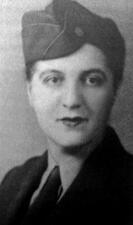Jewish History: Holocaust
Erna Proskauer
Erna Proskauer dreamed of becoming a judge in Germany but lost her job in 1933 and emigrated first to France and then to Palestine. After returning to Germany, Erna faced several setbacks in her quest to return to her career as a lawyer but ultimately opened her own firm. At the age of sixty-five, she took over her former husband’s law office and continued working for another twenty years.
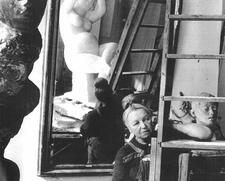
Antonietta Raphaël
Painting and sculptor Antonietta Raphaël rose to fame in the 1950s. Her paintings were seen for the first time in Rome in 1929; during World War II, she took up sculpting, and in the 1950s, she rose to prominence and exhibited her works worldwide.
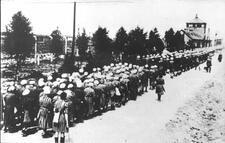
Ravensbruck Women's Concentration Camp
Created to incarcerate women and serve as a “model” concentration camp, Ravensbrück imprisoned about 132,000 women and children between 1939 and 1945, committing them to slave labor and miserable conditions. In addition to thousands of political prisoners, criminals, Jehovah’s witnesses, and those deemed “asocial,” about 20 percent of the camp’s prisoners were Jewish.
Eva Gabriele Reichmann
Born in Silesia, Eva Gabriele Reichmann studied economics in Germany and, after fleeing the Nazis, in London. A prolific writer, especially after her retirement in 1959, Reichmann focused mainly on Judaism and the social history of German Jewry. She was awarded several medals for her contributions to democracy, freedom, and tolerance and died at the age of 101.
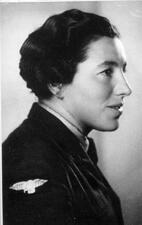
Havivah Reik
Havivah Reik was a Palmah soldier and parachutist who was killed by Nazi collaborators on a secret mission to save thousands of Slovakian Jews.
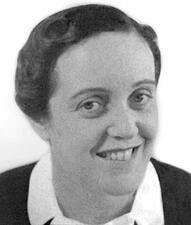
Resistance, Jewish Organizations in France: 1940-1944
Despite the fact that women did not hold a high status in prewar French society, Jewish women played a disproportionately large role in the French resistance against the Nazis. Hundreds of women protected their fellow Jews, especially Jewish children, from the Nazis.
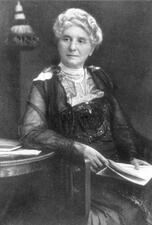
Elise Richter
Elise Richter could not pursue a university degree until she was in her 30s, when she became part of the first group of women to study at the University of Vienna. She received doctoral and post-doctoral degrees and subsequently taught classes on various Romance languages while publishing extensively, making important contributions to the field of historical and comparative linguistics.
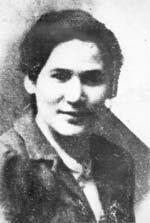
Roza Robota
A member of the Jewish underground in the Auschwitz-Birkenau death camp, Roza Robota was one of the organizers of an operation to smuggle explosives for use by members of the Sonderkommando (Jewish forced-labor unit of concentration camp prisoners) in the October 7, 1944 revolt at the camp.
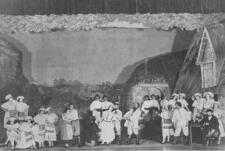
Romanian Yiddish Theater
Romania was a wellspring of the Yiddish theater, as there were Jewish theater troupes in the major Romanian cities and acting troupes traveled throughout the country performing dramas, comedies, musicals, and operettas. Women played a significant role in performing and shaping Romanian Yiddish theater and became known internationally for their work on the Yiddish stage.
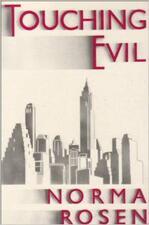
Norma Rosen
Born in Brooklyn in 1925 to secular and assimilated parents, Norma Rosen was an American-Jewish novelist, essayist, educator, editor, and professor. Rosen’s exploration of Jewish history and religion in her writings contributed to questions surrounding Jewish theology and Jewish feminism in the second half of the twentieth century.
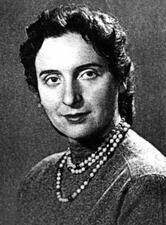
Chava Rosenfarb
Chava Rosenfarb, a major Yiddish novelist of the second half of the twentieth century, is one of the few Holocaust survivors who transmuted their experiences into fiction rather than memoirs or reminiscences.
Käte Rosenheim
A social worker by training, Käte Rosenheim held numerous public service positions in Germany before the Nazis took power. In 1933 she joined the Reich Representation of German Jews; before she herself fled to the United States in 1940, she facilitated the escape of over 7,250 Jewish children from Nazi Germany.
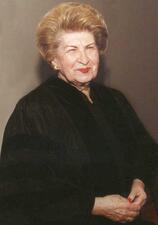
Hadassah Rosensaft
Dr. Hadassah Bimko Rosensaft played an instrumental role in saving the lives of fellow concentration camp inmates at Auschwitz-Birkenau and then at Bergen-Belsen. Rosensaft was later involved in the creation of the United States Holocaust Memorial Museum.
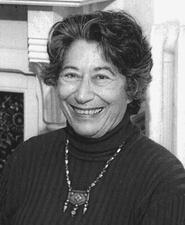
Sylvia Rosner Rothchild
Sylvia Rosner Rothchild was a prolific writer and historian whose works of fiction and nonfiction explored American Jewish identities and captured audiences. Many of her writings depict the descendants of Eastern European Jews who arrived in the United States in the decades surrounding the turn of the twentieth century.
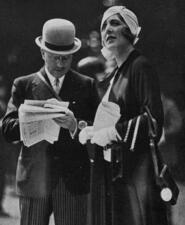
Baroness Germaine de Rothschild
A member of one of France’s most privileged Jewish families, Germaine de Rothschild (née Halphen) was a noted philanthropist, accomplished musician, author of two books, and mother of four. Most significantly, she orchestrated France’s Kindertransport efforts, helping provide refuge to between 350 and 450 Jewish children.
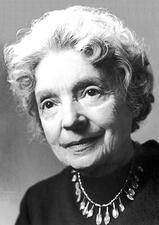
Nelly Leonie Sachs
In 1966 Nelly Sachs became the first German woman to win the Nobel Prize in Literature. After Sachs fled Berlin in 1940, her thirty-year exile in Sweden proved fertile ground for her poetry. She was motivated as a writer by her deep desire to bear witness to the victims of the Holocaust.
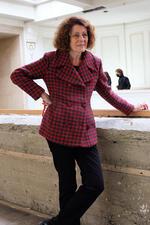
Rachel Salamander
Rachel Salamander is a writer, scholar, editor, and publisher. Born in 1949 in a DP camp in Germany, she has written and published multiple works about German Jewry and DP camps after World War II. In 1982, Salamander established the Literaturhandlung in Munich, a prominent bookshop and meeting place specializing in Jewish literature.
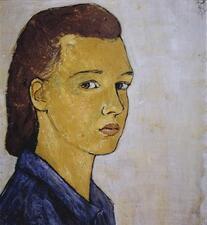
Charlotte Salomon
Else Rahel Samulon-Guttmann
Else Samulon-Guttmann showed her exceptional intelligence early in life, studying law at Berlin university and earning a PhD from Heidelberg University. Appointed a judge in 1929, she lost her position with the Nazi rise to power in 1933. Samulon-Guttmann stayed in Germany for her mother and was murdered at Auschwitz in 1944.
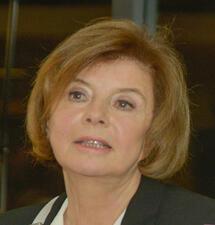
Michèle Sarde
Writer Michèle Sarde’s biographies, novels, and essays cover a wide range of themes and issues, including female literary figures, women’s equality, and the trauma of war persecutions through the lens of both the Holocaust and the Armenian genocide. She has received many awards for her work and taught at Georgetown University for over 30 years.
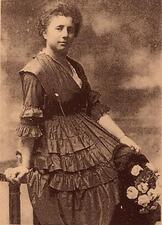
Margherita Sarfatti
Born into a wealthy Venetian Jewish family, Margherita Sarfatti joined the Socialist Party and became the art critic for the newspaper Avanti!, where she met Benito Mussolini. The two became lovers, and she followed Mussolini into the Fascist movement and helped plan the rise of the Fascists, only abandoning his cause when Mussolini embraced antisemitism in 1938.
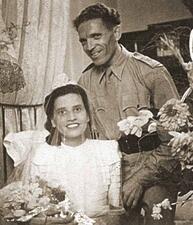
Bouena Sarfatty Garfinkle
Bouena Sarfatty Garfinkle, a Sephardi woman, risked her life over and over again to aid to her community during World War II. At a later stage in her life, Bouena’s historical-literary acumen enabled her to record Jewish life in Salonika during the twentieth century, including the devastation to her community at the hands of the Nazis.
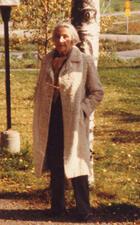
Nathalie Sarraute
Writer and lawyer Nathalie Sarraute was an innovative figure in post-World War II French literature. No longer allowed to practice law during the German occupation of France, she posed as the governess of her three daughters to hide her Jewish identity. Sarraute’s many novels and plays are characterized by an “inwardness” and an unusual lack of characters, names, and plot.
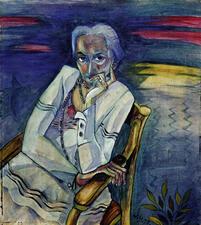
Rosa Schapire
Rosa Schapire was one of the few women to pursue art history studies at a time when the discipline itself was still in its infancy. Her foray into this male-dominated profession was indicative of her allegiance to feminist aspirations to equal opportunity and adult suffrage.
